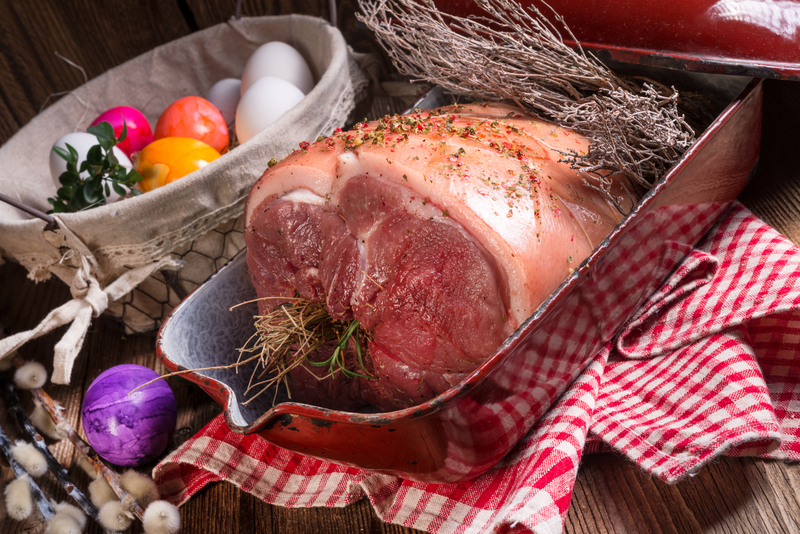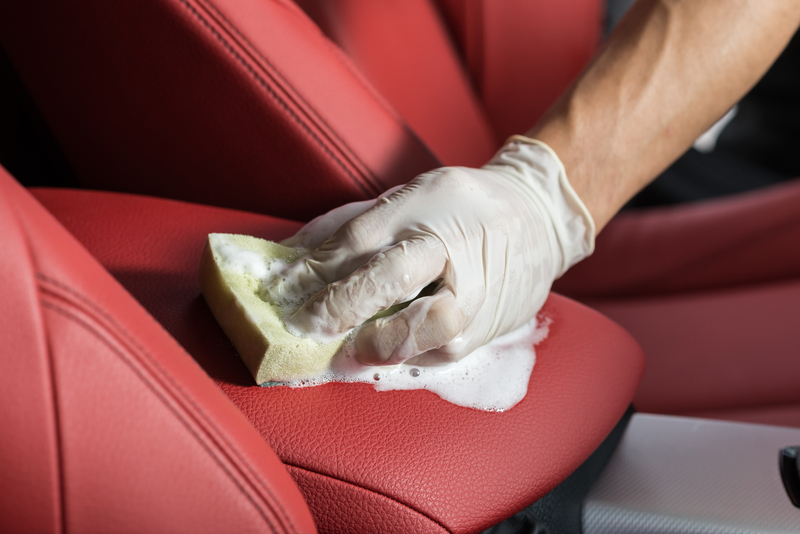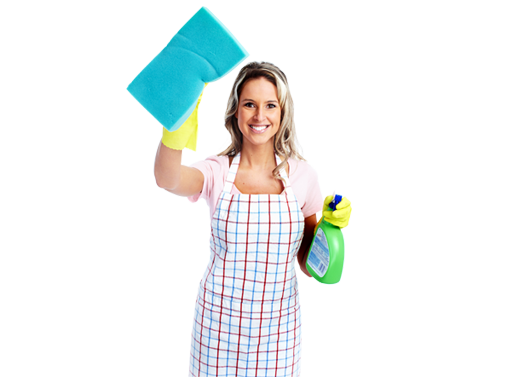Sparkling Jewellery Awaits: Unravel Cleaning Strategies
Posted on 14/09/2025
Sparkling Jewellery Awaits: Unravel Cleaning Strategies
Nothing elevates an outfit like the brilliance of freshly cleaned jewellery. Over time, even the most beautiful diamonds and gemstones lose their dazzle due to exposure to oils, dirt, and environmental pollutants. To keep your cherished items radiant, it is vital to learn the best techniques for cleaning and preserving different types of jewellery. In this comprehensive guide, we explore expert methods and smart tips to make your treasured pieces gleam again.
Why Regular Jewellery Cleaning is Essential
Jewellery, whether gold, silver, diamonds, or gemstones, is more than a fashion accessory. These pieces often hold sentimental value and financial worth. Cleaning jewellery regularly extends its lifespan, preserves its value, and prevents accumulations that can degrade its integrity. Here are some of the top reasons your treasured jewels deserve routine upkeep:
- Preserve Shine: Frequent cleaning maintains the natural brilliance of metals and stones, ensuring your pieces always look their best.
- Prevent Damage: Accumulated dirt and grime can scratch or erode metals, weaken settings, and diminish overall sparkle.
- Hygiene: Jewellery can harbor bacteria, especially rings and earrings. Proper cleaning reduces risk of skin irritations or infections.
- Maintain Value: Well-cared-for jewellery holds its value longer, making it a wise investment for the future.
Understanding Jewellery Types: Tailored Cleaning for Every Piece
Each type of jewellery requires specific care. Understanding the unique needs of your pieces ensures you apply the right approach and avoid accidental damage. Here's a breakdown of popular jewellery types and their cleaning considerations:
- Gold Jewellery: Durable, but susceptible to scratches and tarnish. Requires gentle but effective cleaning.
- Silver Jewellery: Prone to tarnishing and needs specialized tarnish removers for best results.
- Platinum and White Gold: Durable, but can lose luster. Polishing can restore shine.
- Diamonds and Gemstones: While stones like diamonds are sturdy, softer gems like opals, pearls, and emeralds demand delicate handling.
- Costume Jewellery: Often contains base metals and glued-in stones. Avoid water-based cleaning which can impact adhesives.

Jewellery Cleaning Strategies: Pro Methods and At-Home Solutions
Let's peel back the curtain on the most effective ways to clean and revitalise your collection. Whether you're after salon-level sparkle or simple home hacks, the perfect solution awaits beneath the surface.
Professional Jewellery Cleaning: When to Call the Experts
For vintage, highly valuable, or intricately designed pieces, professional cleaning is the safest and most effective option. Specialist jewellers use ultrasonic machines, high-grade polishing cloths, and advanced cleaning agents tailored to your jewellery's make-up. Consider professional cleaning if:
- Settings are fragile or stones feel loose
- The piece features intricate filigree work or multiple gemstones
- It's been more than a year since your last cleaning
- There's heavy tarnish or stubborn grime you can't remove at home
Professional jewellers will also inspect your jewellery for damage, fix settings, and polish pieces to restore showroom brilliance.
DIY Jewellery Cleaning: Simple Solutions for Daily Use
Most jewellery cleaning can be safely and effectively performed at home. Here are tried-and-tested approaches based on type:
1. Gold Jewellery Cleaning Techniques
- Mix a few drops of mild dish soap in a bowl of lukewarm water.
- Soak your gold pieces for 15-20 minutes.
- Gently scrub with a soft-bristle toothbrush, especially behind stones and in crevices.
- Rinse under cool running water and dry with a lint-free cloth.
Tip: Avoid abrasive cleaners and never use baking soda or toothpaste, which can scratch gold.
2. Silver Jewellery Cleaning Methods
- Use a silver polishing cloth for routine tarnish removal.
- For heavier tarnish, create a paste of baking soda and water, then gently rub onto the silver using your fingers or a soft cloth.
- Rinse thoroughly and dry immediately.
- Alternatively, line a bowl with aluminium foil, fill with hot water, and add a tablespoon of baking soda and a bit of salt. Place the silver in the solution for a few minutes, rinse, and buff dry.
Note: Avoid this method for jewellery with intricate inlays or glued components.
3. Diamond and Gemstone Cleaning Approaches
- Use the dish soap and water soak method as above -- diamonds love a good gentle scrub!
- Bridal sets and engagement rings often accumulate residue from lotions and skin oils. A soft brush is excellent for lifting debris from prong settings.
Important! While diamonds are robust, many coloured gemstones--such as emeralds, opals, and pearls--are delicate. Always consult the stone's care requirements before cleaning.
4. Cleaning Delicate and Organic Gems: Pearls, Opals & More
- Pearls: Wipe with a soft, damp cloth after wearing. Avoid excessive water, harsh detergents, or soaking.
- Opals: Clean with a damp cloth; keep away from chemicals, extreme heat, or ultrasonic cleaners.
- Turquoise & Coral: Similar to pearls and opals, keep them dry and protect from exposure to lotions, perfumes, and household cleaners.
5. Cleaning Costume Jewellery
- Use a soft, dry cloth for everyday cleaning.
- If needed, lightly dampen the cloth and gently wipe each piece, avoiding excessive moisture.
- Do not soak or submerge, as adhesives and base metals are prone to corrosion.
The Do's and Don'ts of Jewellery Care
Understanding what to avoid can be as important as knowing what to do. Improper techniques or harsh chemicals might cause irreparable harm.
- Don't: Use bleach, acetone, or chlorine-based cleaners - they corrode metal and compromise settings.
- Don't: Expose jewellery to prolonged moisture, especially costume pieces or pearls.
- Do: Remove jewellery when swimming, exercising, or using household chemicals.
- Do: Store jewellery separately to prevent scratching and tangling.
- Don't: Use rough materials (toothbrushes, abrasive cloths) on delicate gems or plated surfaces.
- Do: Inspect pieces regularly to catch loose stones or damaged clasps before they cause problems.
Jewellery Storage Tips: The Secret to Prolonged Sparkle
After cleaning, storing your jewellery properly further ensures its longevity and sparkle. Here's how:
- Keep pieces in a soft-lined box or individual pouches.
- For silver jewellery, use anti-tarnish strips or cloths in your storage containers.
- Store gold away from harder stones (like diamonds) to avoid scratching.
- Hang necklaces to avoid tangling; lay flat delicate items like pearls.
Troubleshooting Common Cleaning Mistakes
Has a sparkle cleaning session gone awry? Discover how to handle common jewellery cleaning mistakes:
- Cloudy Diamonds: Residue from soap or cleaning agents might leave a cloudy film. Soak in warm water and rinse thoroughly before buffing with a lint-free cloth.
- Scratched Gold or Silver: Light scratches might be erased with a dedicated polishing cloth. For deeper marks, consult a jeweller.
- Loose Stones: If you spot any wobbly settings, stop wearing the item and visit a professional. Avoid at-home tightening to prevent further damage.
- Discoloured Costume Jewellery: Unfortunately, green or blackened spots leave permanent marks on base metals. Prevent future damage by limiting exposure to moisture and keeping items dry.
Top-Selling Jewellery Cleaning Products
Navigating the array of jewellery cleaning solutions can be overwhelming. Here are some of the most popular and effective products on the market:
- Jewellery Cleaning Cloths: Dual-sided cloths designed to polish and protect both gold and silver.
- Ultrasonic Cleaners: Professional-grade machines using soundwaves to safely remove dirt--ideal for metals and harder stones.
- Specialty Soaks: Pre-mixed solutions for specific jewellery types--gold, silver, and diamond cleaning dips are easy and effective.
- DIY Cleaning Kits: Kits with soft brushes, baskets, and cleaning formulas for comprehensive at-home care.

Frequently Asked Questions About Jewellery Cleaning
- How often should I clean my jewellery? - For items worn daily, such as engagement rings or favourite necklaces, clean every 2-3 weeks. For less frequently worn pieces, a deep clean every three to six months is sufficient.
- Is it safe to use vinegar or baking soda on gold and gems? - While they are natural cleaners, they can be too abrasive for gold and delicate stones. Use with caution and always research your specific piece first.
- Can ultrasonic cleaners damage jewellery? - Yes, especially soft gems (pearls, opals) and items with loose stones or glue. Only use on hard stones and solid metal items in good condition.
- How do I store heirloom or antique jewellery? - Keep in a climate-controlled box, wrapped in a soft cloth, and away from direct sunlight or humidity to protect from oxidation and environmental damage.
Conclusion: Let Your Jewellery Shine!
With the right cleaning techniques and regular upkeep, your jewellery can radiate as brilliantly as the day you acquired it. Sparkling jewellery isn't just about aesthetics; it's an investment in tradition, memory, and personal style. Whether you opt for professional shining or DIY routines, mindful care ensures your collection remains dazzling for generations to come.
So, embrace these expert strategies. Your sparkling jewellery awaits--ready to turn heads at every occasion!




